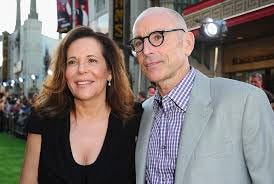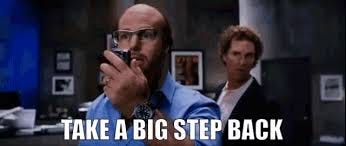When a business collapses, it’s almost never because one single thing goes wrong. This is even more true with businesses that have been historically healthy for many generations… businesses like Hollywood, which had been a money printing machine for the better part of a hundred years before its fortunes began to fail shortly after the turn of the millenium.
It’s very tempting to conclude that Hollywood is struggling now because it went woke… if there is a slogan which defines Conservative attitudes towards Hollywood over the last decade, surely it must be “Get Woke, Go Broke.” Online personalities like The Critical Drinker, Nerdrotic, John Nolte, AceOfSpadesHQ and Victor Von Doomcock (probably not his real name) have built huge followings dunking on Hollywood’s endless flirtations with woke over the last few years. As a result, their work has become something of a genre of criticism all its own. I like a lot of what some of these cultural critics produce, particularly The Drinker, but to suggest that “Woke” is the main reason why Hollywood has collapsed is a gross oversimplication. In the end, the utility of that criticism for getting Hollywood back on track is limited and long ago reached a point of diminishing returns.
After all, Hollywood has always been “Woke”, which is to say “Progressive”, even when it was wildly profitable. Were we more subtle about it in the 60’s and 70’s? Did Hollywood creatives rely more on subtext than text to make their point back in the 80’s? Yeah probably, but political messaging in movies is nothing new under the sun and complaining about the political content of Hollywood’s theatrical product is a long-standing popular American pastime. It’s been a hundred years… if Hollywood hasn’t turned away from Progressivism by now, one more John Notle article at Breitbart ain’t gonna do the trick.
So, instead let’s talk about another problem that will need to be solved if Hollywood is to return to profitability. As with businesses, when there is an aviation mishap it is also never the case that only one single thing goes wrong. Rather, we think of aviation accidents as the result of a cascade of compounding events, often represented by a concept known as The Swiss Cheese Model.
In this model of risk, a slice of cheese symbolizes a safety measure put in place to prevent disaster. No safety measure is entirely foolproof, and so the cheese slices have holes in them to represent potential points of failure. No single point of failure is enough to cause a disaster, but if the holes in the slices line up perfectly, one failure can build upon another and eventually bring down a plane.
But this Swiss Cheese Model is a durable one and can be used to analyze all kinds of complex system failures. If we replace an aviation mishap with a movie that fails spectacularly at the box office, we can also use the model to analyze why Hollywood has been struggling over the last twenty years.
For a long time, one of the cheese slices that mitigated risk in Hollywood was the Major Studio Producer Deal. Once upon a time, the big Hollywood studios fought over the right to bring talented and prolific Producers onto their lots to produce movies for them exclusively. Tinseltown’s primary trade rag Variety used to publish an annual list of all the active deals in a once-indispensable feature called “Facts on Pacts.” When I started in the business thirty years ago, the bigger producer deals had stylish offices on the lot, a half-dozen or more executives to run development along with plenty of overhead to pay for them, big fees and backend formulas for actually producing movies, and sometimes even a “discretionary fund” which a producer could use to pay for things the studio might not want to buy, but which the Producer believed in… “passion projects”, we used to call them.
But over the last twenty years, the lucrative overall Studio Producer deal has largely disappeared. We watched it happen in real time as the number of deals on Variety’s list trended downward for decades. Those that remain have been radically scaled back as corporate Hollywood has embraced two decades of aggressive cost cutting, mergers and desperate stock price boosting. And while it has always been essentially true that Producers don’t get paid until a movie goes into production, it was a little less true back in the era of the big studio deal. Under a studio deal, a prolific Producer would often receive a yearly salary which would be paid out by the parent studio as an advance against his-or-her fees for actually physically producing a movie. These arrangements are much less common than they used to be and the ones that remain have been scaled back precipitously.
Now, I don’t expect my readers to have much sympathy for Hollywood Producers who don’t get paid big advances by Movie Studios the way they used to, but allow me a moment to explain how this fundamental change in the relationship between Producers and the Studios has done great damage to the product we all used to regularly enjoy at the theaters on Friday and Saturday nights.
Any businessman who knows his bills are paid can afford to be less risk avese, to take more chances… and most of the really great movies of the modern era exist because someone, usually a Producer, took a chance. Contrast that with the modern movie environment where Producers are often completely dependent on producing fees which don’t get paid until a movie is greenlit. These modern Producers can’t take as many chances… they must focus their limited time and resources on those movies that are most likely to get made by their studio, or they won’t be able to pay their mortgages. In a highly risk-averse studio environment like the one in which we currently find ourselves, this constitutes a very narrow range of films… basically huge IP-based blockbusters of the kind made by Marvel, DC or Lucasfilm, animated family movies (or live action remakes of those animated movies), and low-budget horror.
Another benefit of these big production deals was that they enabled Hollywood to build a solid bench of young up-and-coming Producers. Scott Rudin was one of the best, most prolific Producers of the modern movie era. He’s since been cancelled for a whole host of sins both real and imagined, but when Rudin was at the apex of his powers, he had an enormous company full of creative executives who learned how to be effective producers at his knee (sometimes literally). The business today is full of Rudin Alumni who are, themselves, some of the best Producers in the business. But they are starting to age out, and in the era of smaller less lucrative overall deals, many of them do not have the staff that Rudin once did, and so there are fewer men and women learning the producing trade the way their bosses did… in the trenches, alongside a master.
But the critical thing to know about Producers is that while they occupy their own space in the series of cheese slices that protect Hollywood from financial disaster, they also have a profound effect on many of the other slices, as well… diversity of product, chief among them.
Everyone understands that the best investment strategy is one which spreads money around in a wildly diversified portfolio of investments. But that’s not what the Studio’s feature film portfolios look like these days.
In the era of the big Producer deals, the best Producers had big ecclectic slates of movies. In essense, the biggest most successful Producers told the Studios what to make, because they understood what the audience wanted… variety. Because Producers with overall deals could afford to take more chances, they were able to build slates which contained an enormous variety of movies, from action, thriller, and horror to romance, adult drama, musicals, westerns and romantic comedies. Scott Rudin made “The Firm” and “The Truman Show”, but he also made “Clueless” and “In and Out.”
Contrast that with 2025 in which the Studio movie business is consumed with and ruled by fear. They have no idea what kind of movies to make because they no longer know what kind of movies we’ll pay to see… and they are terribly afraid that the answer might be “none.” In the grip of their fear, they have retreated to the well of those three genres I mentioned above, and now even those wells have begun to run dry.
Concurrently, with the financial stability that used to come along with a Major Studio Producer deal coming to an end, more and more, Producers will be forced to focus on what they are sure they can get made at the studios… namely, those same three dwindling genres.
And so it has come to this… rather than telling the studios what to make, Producers find themselves in the unenviable position of having to ask the Studios “what will you let us make? And the sad truth is that the answer, as often as not, is “we just don’t know.”
If you enjoyed this essay and would like to support the work we do here at The Continental Congress, please consider becoming a paid subscriber. Thank you, so much, for your time and your patronage!










Hollywood was always red.
https://youtu.be/ZOtinTlx7yo?si=LJpzEeDYH1_qXex5
This article does take me back to the days hanging out on the Furious D blog and discussing the movie business. Love the idea of the swiss cheese model - though yeah, with Hollywood it's more reversed. Less about preventing failure and more about preventing success. You really need all the holes to line up. (And their accounting tricks are the biggest roadblock to any success.)